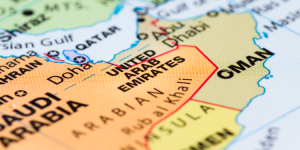
Travel and moving abroad plans are back on track as summer approaches in many countries. However, health restrictions seem to be a heavyweight in the balance for many. While some have delayed their travel plans until better days, others simply gave up. Why would they move to a country with so many restrictions when their home country lifted its restrictions?
Bad combination for the anti-vax, anti-mask people
Many people around the world still consider vaccination against Covid and PCR tests as an attempt at their freedom. Moreover, paying to get PCR tests done is perceived as a racket. As a result, large masses are saying no to the vaccine, no to the tests, no to the mask, and no to barrier gestures. Keeping up with their convictions, some of them have had no choice but to give up their job, tired of vaccination obligations and barrier measures. That being said, those who are against all these requirements have had to rethink and even abandon their international travel plans. In recent months, anti-vax and anti-mask people got together physically and on social media to voice out their thoughts, eager to get back to normalcy, but without necessarily agreeing to the new normal.
Fortunately, these are just a few extremes. While many other people are anti-vaccine, they had no choice but to accept PCR testing when they needed to travel. It's worth noting that even though some countries are totally open to non-vaccinated people, a PCR test might be required upon return to the home country. Alternatively, unvaccinated are turning to entirely open countries, such as Jamaica, Croatia (open for non-vaccinated EU members), Mexico, Argentina, Gabon, Mongolia, etc. Chile is also open to all travellers regardless of their vaccination status. However, you are required to present a mobility pass for access to restaurants and public transport, for example. What's more, this pass is only issued upon proof of complete vaccination.
Restrictions around the world
Europe, Canada, the United States, etc., have experienced new Covid waves lately. But epidemiologists strongly condemn the lifting of restrictions. In France, more than 100,000 new cases are reported every day. Still, the government is not considering the reintroduction of strict restrictions. Hence, wearing a mask remains compulsory only in transport, including in airplanes, airports, and hospitals. In Quebec, the mandatory wearing of a mask is back until April 30. In Ottawa, people are campaigning for the return of the mask to school. All this can be quite confusing for travellers moving from countries where they almost enjoy total freedom, as in France or the United Kingdom, to a country where barrier measures are still in place or being reintroduced. In Spain, for example, most people still wear a mask on the street. In Morocco, on the other hand, wearing a mask and social distancing remain compulsory. So travellers have to seek all the necessary information to adapt to each situation. Observe and compare the barrier measures in force in both countries before deciding.
How do restrictions impact expatriation plans?
Unnecessary travel to countries like Japan, New Zealand and China is still forbidden. However, those looking to move or simply travel abroad can consider many other countries. Since the beginning of the Covid pandemic, many people have successfully moved abroad while considering restrictions and entry conditions. While for some, it was a real challenge, for others, it was an opportunity to do thorough research and take the necessary time to plan their trip. Unfortunately, many found themselves in a country they had not chosen at the start: the borders of the selected destination were closed, and they had to find another place. But this was no less than an adventure with a lot of surprises.
Regarding barrier gestures, masks and sanitisers have become part of everyday life anywhere. These essentials will help you adapt to your new environment, especially where strict restrictions are still in place. Restrictions affect moving abroad plans in various ways, whether it's about choosing the destination, defining a budget, dealing with administrative and medical formalities, waiting time, etc. The quietest are the future vaccinated expatriates.
It cannot be ignored that a large number of expats have unwillingly got vaccinated for the sake of travelling. Indeed, EU countries, for example, require full vaccination with vaccines recognised by the WHO and the European Medicines Agency (EMA). Today, being vaccinated remains the best option to avoid unpleasant surprises on your arrival in your host country, such as no access to transport, restaurants, concert halls, cinema, etc. Why would you even want to move abroad if you cannot have a normal life like the rest of the population? Unfortunately, wearing a mask and sometimes social distancing with strict limitations still apply to many places where you are likely to have a social life.




















